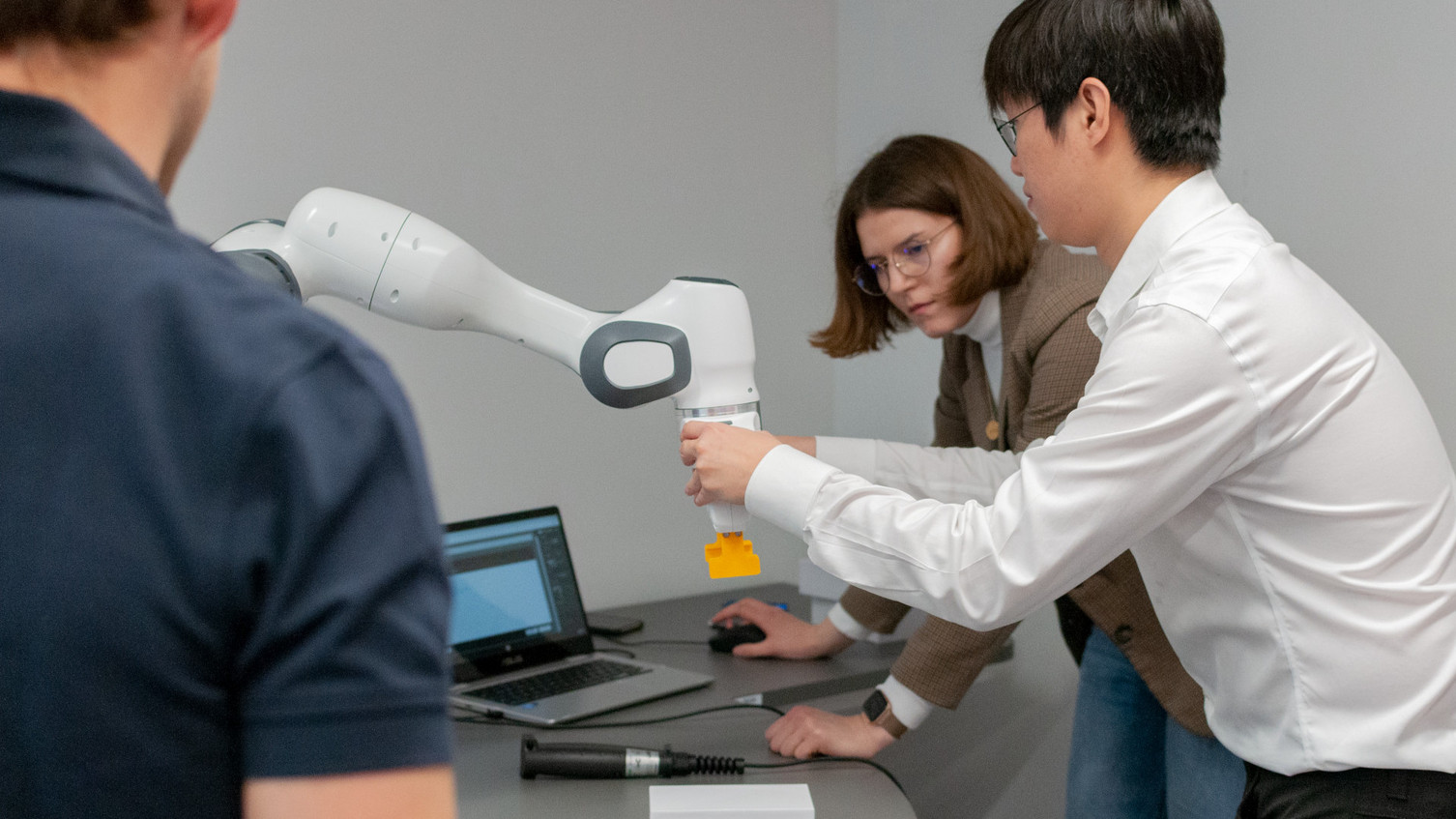Robot Factory Lüneburg seeks to dispel reservations
2021-11-12 Robot Factory (Roboterfabrik) Lüneburg was launched at Leuphana as part of the "Robonatives Initiative Northeast Lower Saxony" (RoboNord) project. Some 45 representatives from regional companies, schools of general and vocational education, employer and employee representatives, and multipliers were able to experience collaborative robotics in action in Leuphana's central building.
 ©Leuphana/ Marie Meyer
©Leuphana/ Marie Meyer
Robonatives - that's what people are called who have no reservations about interacting and working with robots. The demand for robonatives is rising sharply due to digital transformation. They are urgently needed for companies to persist in the market in the age of automation.
In the future, the project "Robonatives Initiative Nordostniedersachsen (RoboNord)" at Leuphana University Lüneburg seeks to prepare people in all areas of society for the growing importance of robotics and to dispel any reservations. At Roboterfabrik Lüneburg, the relevant skills can be acquired directly when working with specific, collaborative robots. With the help of sensors in their arms, these robots are able to recognise potential collisions with humans and adjust their movements accordingly. The safety of humans is thus ensured at all times during collaboration.
Deployment of these robots at Leuphana is made possible by the university's cooperation with non-profit Robokind Stiftung as part of the "Robonatives Initiative" in Lower Saxony.
In his keynote speech at the opening, Prof. Dr. Sami Haddadin, founder of the Robokind Foundation, Leibniz Prize winner, and professor at the Technical University Munich, made a clear statement about the influence of robotics on our future: "Robotics and artificial intelligence will fundamentally change our world as few technologies have done before.”
Prof. Dr. Anthimos Georgiadis, project manager at Leuphana, likewise emphasised the importance of the topic for Leuphana University and the Lüneburg region: "For both students and employees of regional companies, the Robonatives Initiative offers the opportunity to interactively experience the field of robotics and to build up and expand competence in this area. Today's event is a successful start and as a result we hope to be able to reach many people in the future."
As part of the Robonatives Initiative, introductory courses in collaborative robotics as well as an IHK-certified (Chamber of Industry and Commerce) application course will be offered at Roboterfabrik Lüneburg for anyone interested in robotics in the region. Students have the opportunity to research and develop at Roboterfabrik as part of their courses, seminars and theses. Even pupils can learn how to use a collaborative robot by taking a robot driving licence.
The RoboNord project is funded by the European Social Fund and the state of Lower Saxony. The project is also supported by IHK Lüneburg-Wolfsburg (Lüneburg-Wolfsburg Chamber of Industry and Commerce), Wirtschaftsförderungs-GmbH Lüneburg (Lüneburg Business Development Agency), Wirtschaftsforum Lüneburg e.V. (Lüneburg Business Forum), and Arbeitgeberverband Lüneburg-Nordostniedersachsen e.V. (Lüneburg-Northeast Lower Saxony Employers' Association).
